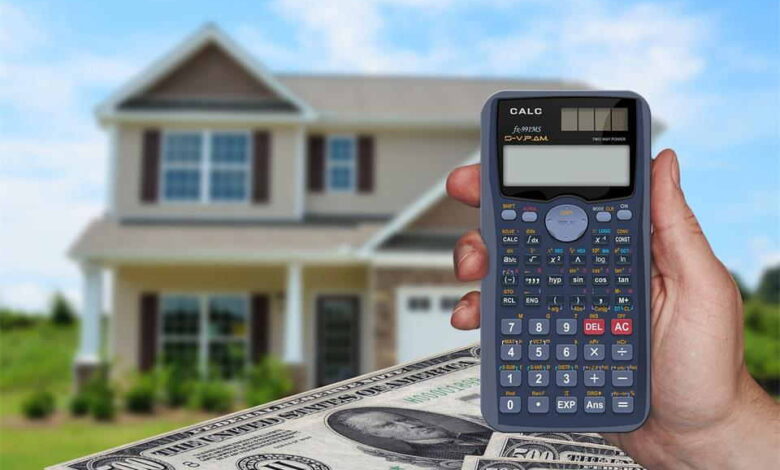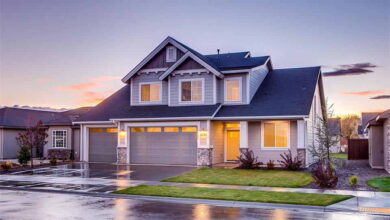Alternative Home Financing Options for Retirees

As more Americans approach retirement age in 2025, finding ways to create reliable income without sacrificing lifestyle has become a top priority. For homeowners 62 or older, reverse mortgages and jumbo reverse mortgages offer powerful ways to access home equity.
But these are just part of a broader ecosystem of alternative financing solutions that have evolved to serve unique borrower situations.
Let’s explore which option might be right for your financial future, along with other alternative mortgage options that are helping Americans achieve their housing goals when traditional banks say “no.”
What Is a Reverse Mortgage?
A reverse mortgage is a federally insured loan available to homeowners aged 62 or older, allowing them to convert part of their home equity into cash without having to sell the home or make monthly mortgage payments.
The most common type is the Home Equity Conversion Mortgage (HECM), backed by the Federal Housing Administration (FHA).
Key Features:
- Available for homes valued within FHA lending limits (currently $1,089,300 in 2025)
- No monthly mortgage payments required
- The homeowner remains on title and retains ownership
- The loan is repaid when the homeowner sells, moves, or passes away
Pros:
- Access cash tax-free
- Stay in your home while receiving income
- Can be used to supplement retirement income, pay off existing mortgage, or cover healthcare costs
Cons:
- You must continue paying property taxes, insurance, and maintenance
- Reduces the equity left to heirs
To qualify, you must:
- Be 62 years or older
- Own your home outright or have a low mortgage balance
- Live in the home as your primary residence
- Be able to maintain the home and pay property taxes and insurance
The amount you can borrow depends on your age, current interest rates, and your home’s value. The older you are and the more valuable your home, the more you can potentially borrow.
What Is a Jumbo Reverse Mortgage?
A jumbo reverse mortgage, sometimes called a proprietary reverse mortgage, is a non-government loan designed for homeowners with high-value properties that exceed FHA limits. These privately backed loans allow seniors with high-value homes to access significantly more of their equity—potentially up to $4 million or more.
Jumbo reverse mortgages are ideal for retirees with homes worth over $1 million who want to access more equity than what an FHA-backed reverse mortgage would allow.
Key Features:
- Designed for properties above the FHA limit
- No federal insurance required
- Often higher loan limits and larger payouts
Pros:
- Unlock more of your home’s equity
- No mortgage insurance premiums
- May offer more flexible terms and payout options
- More flexible property types (some luxury condos that don’t qualify for HECMs)
Cons:
- Not regulated like HECMs
- May have different qualification standards
- Potentially higher upfront costs
Reverse Mortgage vs Jumbo Reverse Mortgage: The Key Differences
| Feature | Reverse Mortgage (HECM) | Jumbo Reverse Mortgage |
| Regulation | FHA-insured | Privately funded |
| Home Value Limit | Up to $1,089,300 | Often $1M+ |
| Loan Amount | Capped by FHA limits | Larger loan amounts available |
| Mortgage Insurance | Required | Not required |
| Interest Rates | Often lower | May vary, sometimes higher |
| Payout Flexibility | Fixed, monthly, or line of credit | Varies by lender |
Which One Is Right for You?
If your home is valued under $1.1 million and you want the security of a government-backed product, the standard reverse mortgage (HECM) may be your best bet.
However, if your property is a high-value home and you want access to more equity with flexible terms, the jumbo reverse mortgage might be a smarter choice.
Before choosing, consider:
- Your home’s appraised value
- How much equity you want to access
- Whether you prefer federally backed or private options
- Your long-term estate planning goals
Property Requirements for Reverse Mortgages
To qualify for either type, your home must meet certain standards. Eligible properties include:
- Single-family homes
- 2-4 unit homes (one unit must be owner-occupied)
- HUD-approved condominiums
The home must be your primary residence, and you must be able to keep up with taxes, insurance, and upkeep.
Beyond Reverse Mortgages: Other Alternative Financing Options
While reverse mortgages are excellent solutions for retirees, the modern mortgage landscape offers specialized options for other underserved groups as well.
Bank Statement Mortgages & Self-Employed Mortgages
The gig economy continues to expand in 2025, with nearly 40% of Americans now earning income through self-employment, freelancing, or side hustles. Yet traditional mortgage qualification remains stubbornly focused on W-2 employment and tax returns—documents that often don’t reflect the true financial picture of self-employed borrowers.
Bank statement mortgages solve this problem by using 12-24 months of business or personal bank deposits to calculate income rather than tax returns. This alternative documentation method can be a game-changer for:
- Small business owners
- Freelancers and contractors
- Real estate investors
- Commission-based sales professionals
- Medical professionals with private practices
- Anyone with significant but complicated income streams
While these loans typically require higher down payments (often 10-20%) and carry slightly higher interest rates than conventional mortgages, they open homeownership doors that would otherwise remain firmly shut.
DSCR Loans: Empowering Real Estate Investors
For real estate investors, 2025 continues to present unique financing challenges. Traditional lenders often cap the number of mortgages an investor can hold or impose strict debt-to-income requirements that don’t account for the income-generating potential of investment properties.
Debt Service Coverage Ratio (DSCR) loans have emerged as the solution of choice for serious property investors. Unlike conventional mortgages that scrutinize the borrower’s personal income, DSCR loans focus almost exclusively on the property’s ability to generate rental income.
DSCR loans offer several advantages for investors:
- No personal income verification required
- No limit on the number of financed properties
- Qualification based on the property, not the borrower
- Available for both residential and commercial properties
- Can be used for purchase or refinance
Conclusion
The mortgage landscape of 2025 offers more diversity and flexibility than ever before. While traditional banks and conventional loans work well for many Americans with straightforward financial situations, those with unique circumstances no longer need to accept rejection as the final answer.
Whether you’re a retiree looking to tap into your home’s equity, a self-employed professional with complex income documentation, or an investor building a real estate portfolio, specialized financing solutions exist to help you achieve your goals.
The key is working with lenders and brokers who understand these niche products and have experience navigating their specific requirements. Unlike big banks with rigid approval criteria, specialized mortgage providers can often find creative, compliant solutions tailored to your unique situation.
Ready to Explore Your Options?
If you’re self-employed or investing in real estate, the team at TrussFinancialGroup.com specializes in bank statement mortgages and DSCR loans designed to help you succeed where traditional financing falls short.



